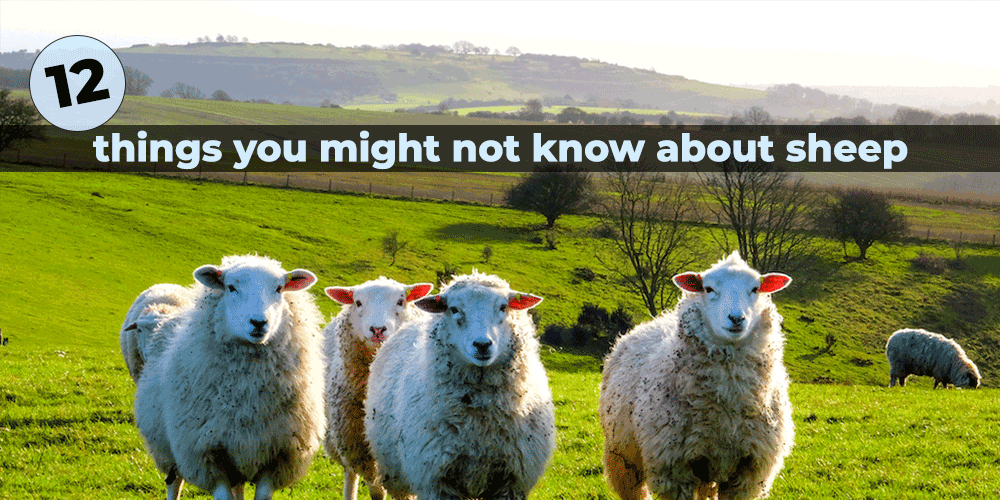Twelve things you might not know about sheep

Sheep are amazing animals, producing fleeces that continually grow throughout their lives. Humans have been farming sheep for thousands of years, especially for their wool, which is a wonderful fibre. Temperature regulating and breathable, it makes the perfect fibre for clothing and bedding.
In fact, sheep are ‘woolly wonders’ and here are twelve facts about them that you might not have known:
ONE: There are over 1,000 different breeds of sheep and the UK has the highest number of breeds in the world – over 60! Wool from British sheep has been prized for over 2,000 years.
TWO: Sheep are naturally friendly. They can wag their tails, like dogs, and they form strong bonds with other sheep, goats…and people.
THREE: Sheep are known to self-medicate when they have some illnesses. They instinctively choose and eat specific plants that they know will help them feel better.
FOUR: Sheep are intelligent and have a similar IQ to cattle. In fact, they are nearly as clever as pigs and are capable of problem solving.
FIVE: Sheep have excellent memories and can remember up to 50 individual sheep and people for years. Hand reared lambs will bond very quickly with their human ‘parents’.
SIX: Sheep are very sociable. They are highly independent from birth and like to be in a group. They are able to communicate different emotions through various vocalisations and will also move their ears to show differing emotions.
SEVEN: Sheep were considered to be sacred for thousands of years. The Ancient Sumerians (4,000 – 2,000 BCE) immortalised sheep in the form of their gods, as did the Ancient Egyptians (3,200 BCE – 30 AD), who also mummified them when they died.
EIGHT: A sheep’s fleece will grow for ever. Depending on the breed, a sheep will produce between two and thirty pounds of wool a year. In the UK, sheep are only sheared in the Spring and Summer, when they naturally need to lose their fleece. The British Wool organisation are responsible for providing training courses for shearers in the UK.
NINE: Sheep have excellent peripheral vision. Their large pupils allow them to see almost 360 degrees and they can see behind themselves without turning their heads.
TEN: Sheep lived at the White House. US President Woodrow Wilson kept a flock of sheep at the White House to keep the grass trimmed. In the 1920s and 1930s, sheep were often grazed in London’s parks for the same purpose. In more recent years, sheep have also trimmed the grass in Green Park, opposite Buckingham Palace, as part of a biodiversity initiative.
ELEVEN: Sheep can help with biodiversity. They are very selective grazers and will target flowering plants that can have a negative impact on species diversity. This is particularly important for grasslands, which are habitats for many types of flora and fauna, including beetles, butterflies and birds. These grasslands can be maintained and helped naturally through selective grazing.
TWELVE: Sheep’s wool has many wonderful benefits. It is resistant to dust mites and the build-up of micro bacteria, which makes it naturally hypoallergenic and also more hygienic than many other fibres. It is temperature regulating and breathable, keeping you cool when it’s hot and warm when it’s not. It is also naturally fire retardant. Sheep’s wool is a natural fibre and so it is sustainable and will biodegrade naturally over time, so it’s better for the environment than synthetic fibres.
The wool that we use in our individually luxury handcrafted wool duvets is traceable 100% British wool, certified by the British Wool organisation and it is washed in British mills without the use of chemicals or bleach, so it’s 100% natural – from the sheep with love to you!
If you’d like any information about our wool duvets, toppers and pillows, then please visit our website or contact us and one of the team will be happy to help.
Ref: woolduvets.com; British Wool, Modern Farmer, Science Kids, Science Direct


